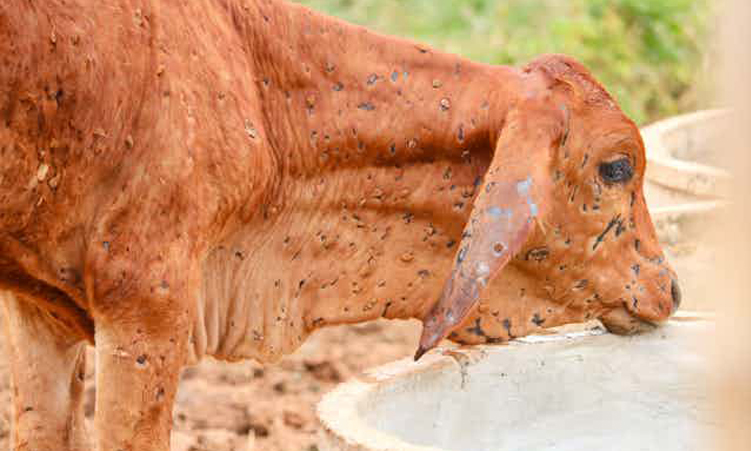THE High Court on Friday declined to interfere with a 10-year prison sentence that a former Usakos resident with a history of stock theft received after he admitted that he had re-offended by stealing a goat.
One thing that Albertus Goabab may realise after Judge Annel Silungwe’s dismissal of his appeal against the jail term he received in the Usakos Magistrate’s Court on July 25 2002, is that it does not help to have a criminal record stretching back to 1979 – and including five convictions for stock theft – if you want to complain about an admittedly heavy jail sentence in your most recent clash with the law over stealing a goat. He might also realise that, in fact, he was lucky not to have been sentenced after the Stock Theft Act was amended last year to require courts to impose heavy minimum jail terms on stock thieves – including terms of at least 30 years’ imprisonment for repeat offenders.Goabab was 45 years old, unemployed, unmarried and the father of four children when he was sentenced to 10 years’ imprisonment after he admitted that he had stolen a goat on a farm in the Usakos area on February 17 2002.He told the Magistrate presiding at his trial that he knew he was doing something wrong – after all, he had been convicted of and sentenced for stock theft on five previous occasions already – when he stole the goat, valued at N$280.When asked during his trial why he had stolen the animal, Goabab answered: “With the intention to eat, and I eat it (sic).”His previous convictions for stock theft date back to 1984, 1986, 1990, and 1995.The first time that he was found guilty of stock theft, which was also for stealing a goat, Goabab received a two-month prison sentence.On his second stock theft conviction, for stealing a sheep, he was sentenced to six months’ imprisonment.Four years later, in 1990, he was treated more leniently for once again having stolen a sheep, and he was sentenced to a suspended six-month prison term, his record of previous convictions shows.He however landed back in court once again for stock theft on two occasions near the end of 1995.On the first occasion, he received a three-year jail term for the theft of one goat; a week later, he was sentenced to four years’ imprisonment for the theft of one sheep.As soon as he was released from prison after more than six years, Goabab again committed the same crime, State advocate Orben Sibeya pointed out to Judge Silungwe during the hearing of Goabab’s appeal.The Judge took heed of what Sibeya told the court, noting that in the prosecutor’s words, Goabab had declared war on stock farmers.Judge Silungwe stated in his judgement, delivered immediately after hearing arguments from Sibeya and Rocco Kauta, representing Goabab in the appeal, that he accepted Sibeya’s argument that Goabab had a propensity to commit crimes, and particularly crimes involving livestock.It was quite clear that he was a danger to society, and that the Magistrate who had sentenced him did not in any way misdirect himself when he imposed the 10-year term, the Judge said.Goabab was still sentenced under the Stock Theft Act as it stood before it was amended last year to lay down severe mandatory sentences for people convicted of stealing farm animals.Had he been sentenced under the amended law, the court would have been compelled by law to send him to prison for 30 years, due to the fact that he is a repeat offender – unless the court found that there were “substantial and compelling circumstances” not to impose the minimum prescribed sentence.He might also realise that, in fact, he was lucky not to have been sentenced after the Stock Theft Act was amended last year to require courts to impose heavy minimum jail terms on stock thieves – including terms of at least 30 years’ imprisonment for repeat offenders.Goabab was 45 years old, unemployed, unmarried and the father of four children when he was sentenced to 10 years’ imprisonment after he admitted that he had stolen a goat on a farm in the Usakos area on February 17 2002.He told the Magistrate presiding at his trial that he knew he was doing something wrong – after all, he had been convicted of and sentenced for stock theft on five previous occasions already – when he stole the goat, valued at N$280.When asked during his trial why he had stolen the animal, Goabab answered: “With the intention to eat, and I eat it (sic).”His previous convictions for stock theft date back to 1984, 1986, 1990, and 1995.The first time that he was found guilty of stock theft, which was also for stealing a goat, Goabab received a two-month prison sentence.On his second stock theft conviction, for stealing a sheep, he was sentenced to six months’ imprisonment.Four years later, in 1990, he was treated more leniently for once again having stolen a sheep, and he was sentenced to a suspended six-month prison term, his record of previous convictions shows.He however landed back in court once again for stock theft on two occasions near the end of 1995.On the first occasion, he received a three-year jail term for the theft of one goat; a week later, he was sentenced to four years’ imprisonment for the theft of one sheep.As soon as he was released from prison after more than six years, Goabab again committed the same crime, State advocate Orben Sibeya pointed out to Judge Silungwe during the hearing of Goabab’s appeal.The Judge took heed of what Sibeya told the court, noting that in the prosecutor’s words, Goabab had declared war on stock farmers.Judge Silungwe stated in his judgement, delivered immediately after hearing arguments from Sibeya and Rocco Kauta, representing Goabab in the appeal, that he accepted Sibeya’s argument that Goabab had a propensity to commit crimes, and particularly crimes involving livestock.It was quite clear that he was a danger to society, and that the Magistrate who had sentenced him did not in any way misdirect himself when he imposed the 10-year term, the Judge said.Goabab was still sentenced under the Stock Theft Act as it stood before it was amended last year to lay down severe mandatory sentences for people convicted of stealing farm animals.Had he been sentenced under the amended law, the court would have been compelled by law to send him to prison for 30 years, due to the fact that he is a repeat offender – unless the court found that there were “substantial and compelling circumstances” not to impose the minimum prescribed sentence.
Stay informed with The Namibian – your source for credible journalism. Get in-depth reporting and opinions for
only N$85 a month. Invest in journalism, invest in democracy –
Subscribe Now!










